The AI Transformation in SEO: A New Era Begins
As digital competition intensifies, innovative AI-driven SEO strategies are becoming indispensable tools to succeed in search rankings. Leveraging advanced AI capabilities for keyword research, content optimization, and technical SEO offers businesses unparalleled insights and automation that traditional methods cannot match. This article explores how AI is reshaping SEO to help marketers outperform competitors in 2024 and beyond, providing strategic knowledge, emerging trends, and best practices for sustainable success.
Emerging AI-Driven SEO Techniques Reshaping Digital Marketing
What are the latest AI-driven SEO techniques to outperform competitors?
In 2024, SEO is increasingly powered by advanced artificial intelligence methods. These techniques focus on leveraging sophisticated machine learning, natural language processing (NLP), and predictive analytics to stay ahead of the competition.
One major development is the use of AI tools like Semrush, Ahrefs, and Search Atlas, which now incorporate AI to automatically analyze vast datasets. They identify search trends, find content gaps, and suggest improvements that align with Google's evolving algorithms and the E-E-A-T (Experience, Expertise, Authority, Trustworthiness) standards.
AI enhances keyword research by understanding semantic relationships and user intent, not just isolated keywords. This shift allows marketers to create content that matches natural language and conversational searches, especially important with the rise of voice searches. AI tools also recommend technical updates, such as metadata improvements or mobile optimization suggestions, which help improve site visibility.
Content optimization is another key area where AI shines. It supports writing high-quality, user-focused content, and automates editing tasks. Link building becomes more efficient as AI tools analyze backlinks and automate outreach campaigns.
Emerging trends include optimizing for voice and visual search. Visual search uses AI-powered image recognition, allowing users to find products or information through images. Voice search strategies focus on conversational phrases and questions, prepared through NLP analysis.
Predictive analytics plays a vital role by forecastingsearch trends and patterns, enabling proactive content updates. This not only improves rankings but also enhances user engagement by personalizing experiences based on behavioral predictions.
Overall, AI-driven SEO strategies enable faster, data-backed decisions and personalized content creation. By integrating machine learning and NLP into everyday practices, digital marketers can outperform competitors, meet evolving search engine standards, and adapt swiftly to new search behaviors.
AI-Powered Tools and Trends Shaping Modern SEO
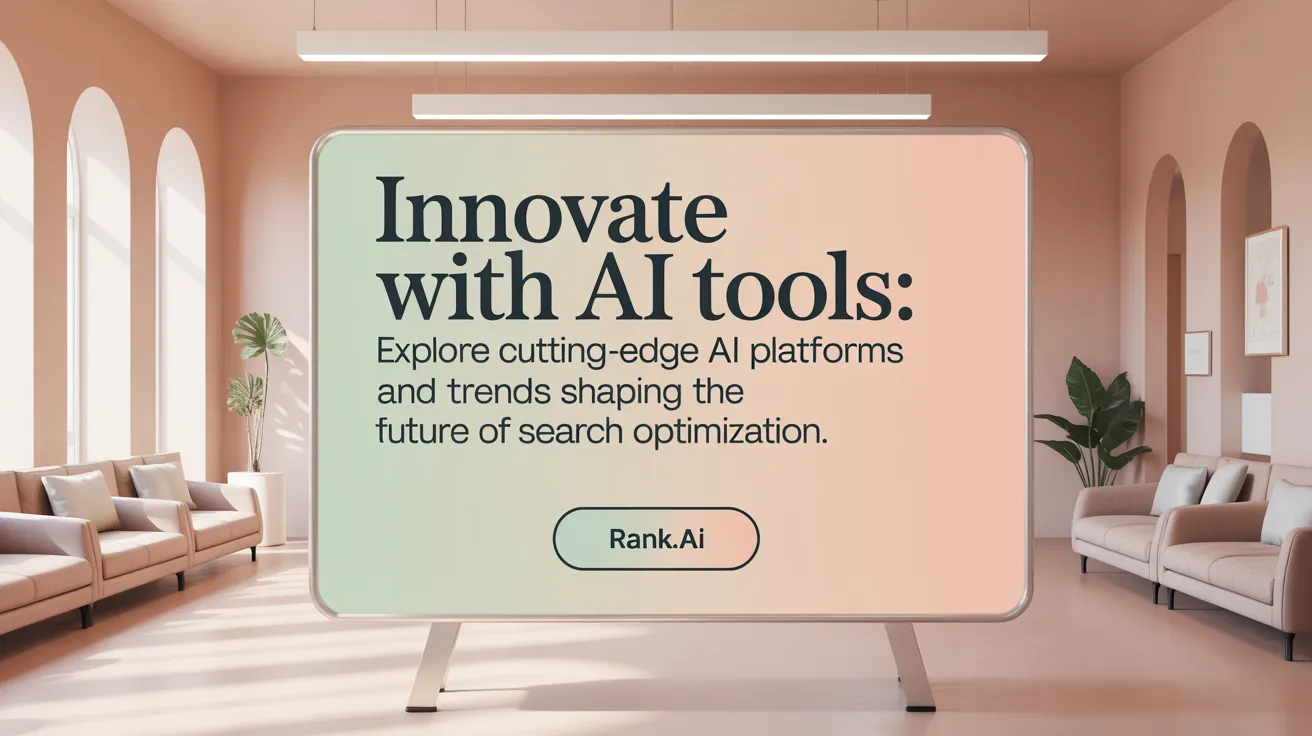
What emerging AI-powered tools and trends are shaping search engine optimization today?
AI is revolutionizing SEO through a suite of advanced tools that automate and enhance various aspects of digital marketing strategies. Leading platforms such as MarketMuse, Semrush, Search Atlas, and Indexly offer capabilities like content generation, technical audits, backlink analysis, and competitor research. These tools help marketers identify content gaps quickly, optimize existing pages, and uncover new opportunities with minimal manual effort.
A significant trend involves the adoption of sophisticated natural language processing models such as Google’s BERT, MUM, and generative AI technologies like ChatGPT. These models improve understanding of search intent, semantic relationships, and conversational language, making search results more relevant and personalized.
Real-time data analysis is another major shift. AI systems now continuously monitor search patterns and indexing behaviors, allowing for immediate adjustments to content and strategies. This dynamic approach helps maintain high rankings and relevancy amidst changing algorithms.
Predictive analytics powered by AI also enable SEO professionals to forecast emerging keywords and trends before they become competitive, giving early mover advantages. Additionally, AI automates routine tasks—like content optimization and site audits—freeing up human resources for strategic planning.
Overall, these developments are driving a more efficient, insightful, and personalized form of SEO. They allow businesses to adapt swiftly, improve user engagement, and achieve sustainable growth in search visibility.
| Platform/Trend | Functionality | Impact | Example Use |
|---|---|---|---|
| MarketMuse | Content Strategy | Identifies gaps, suggests new topics | Filling content gaps quickly |
| Semrush | SEO Analysis | Technical audits, backlink checks | Improving site health |
| BERT/MUM | Search Intent Understanding | Better match with conversational queries | Enhancing relevance |
| Generative AI (ChatGPT) | Content Creation | Automated article drafting | Speeding up content production |
| Real-time Analytics | Data Monitoring | Immediate insights for adjustments | Staying ahead of trends |
| Predictive Analytics | Trend Forecasting | Anticipates emerging keywords | Early optimization |
AI’s role continues to expand, shaping the future of SEO by offering smarter, faster, and more targeted strategies. Embracing these tools will be essential for businesses aiming to stay competitive in an increasingly AI-driven search landscape.
Strategic AI Use for Competitive Analysis and Ranking Improvement
How does AI assist in analyzing competition and improving search rankings effectively?
AI plays a pivotal role in understanding and surpassing competitors in the dynamic landscape of SEO. Using advanced tools like SEMrush, Ahrefs, and SpyFu, AI can analyze large volumes of data to identify what keywords competitors are targeting, where backlinks are coming from, and how their content is performing.
One of the significant advantages of AI is its ability to uncover gaps in your content strategy. By examining competitor keywords and search intent patterns, AI helps you identify valuable keyword opportunities you might have overlooked and suggests content topics that resonate with user interests.
AI-driven analytics also enable detailed backlink analysis, revealing authoritative sources linking to competitors, which can inform your own link-building efforts. This strategic insight allows you to identify high-authority sites for outreach and enhance your backlink profile.
Beyond keyword and backlink analysis, AI tools facilitate technical SEO audits by diagnosing crawl issues, site structure inefficiencies, and schema markup problems that might hinder your rankings. Continuous monitoring of these technical factors ensures your website remains optimized and search engine friendly.
Moreover, AI tracks social media trends and market movements, helping you adapt your content and outreach strategies in real time. This responsiveness ensures your SEO efforts stay aligned with current trends, boosting your chances of higher rankings.
In summary, AI empowers your SEO strategy by providing granular insights into competitors’ tactics, forecasting changes, and enabling proactive adjustments. This comprehensive approach leads to higher search rankings and a stronger competitive position.
| Aspect | Functionality | Example Tools |
|---|---|---|
| Competitive Keyword Analysis | Identifies target keywords and search intent patterns | SEMrush, SpyFu |
| Backlink Source Analysis | Tracks backlink sources and authorities | Ahrefs, Majestic |
| Content Gap Identification | Finds keyword and topic opportunities your competitors miss | MarketMuse, SurferSEO |
| Technical SEO Monitoring | Detects site issues impacting indexing and usability | Google Search Console, Screaming Frog |
| Trend and Market Tracking | Gauges current social and market trends for content relevancy | Brandwatch, BuzzSumo |
Achieving better search rankings involves combining these AI-powered insights with human expertise, maintaining adaptability, and continuously monitoring your SEO environment.
Preparing for 2025 and Beyond: AI’s Strategic Role in SEO
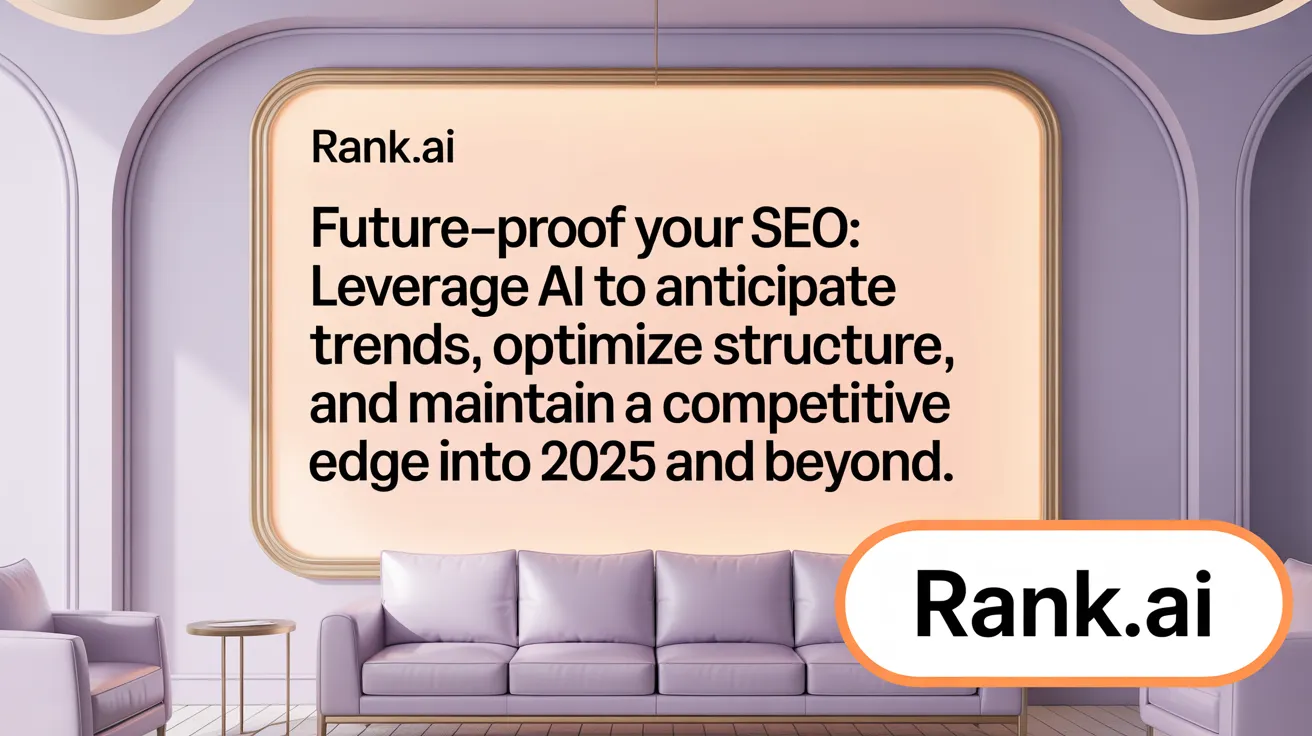
As search engines continually evolve, AI-driven SEO strategies are essential for staying competitive through 2025 and into the future. Advanced AI analytics enable real-time monitoring and insights, allowing businesses to track user behavior and emerging trends more accurately than ever before. These tools facilitate predictive analysis of SEO performance, enabling proactive adjustments that keep content aligned with shifting search intent.
Organizations should focus on optimizing structured data and semantic content to improve AI understanding. Techniques like schema markup and topic clustering help search engines identify relevant content, increasing the likelihood of featured snippets and rich results. Incorporating original research, expert insights, and comprehensive coverage aligns with AI’s focus on authoritative, high-quality content.
The emphasis on voice and conversational search will only grow. Creating content that mirrors natural language and user questions is crucial. AI tools analyze voice search patterns, helping marketers craft content that addresses common queries in a conversational manner.
Maintaining brand credibility through the principles of E-E-A-T (Experience, Expertise, Authority, Trustworthiness) remains vital. AI enhances this by better interpreting content context and detecting authoritative signals, fostering trust and higher rankings.
Continuous automation of content updates, technical SEO tasks, and competitive analysis through AI tools streamlines efforts and ensures rapid adaptation to algorithm changes. These tools help identify content gaps, optimize for technical factors such as site speed and crawlability, and monitor Core Web Vitals.
Ultimately, a balanced approach that combines AI’s capabilities with human expertise—focused on user experience, quality content, and brand trust—is essential for sustainable SEO success. By leveraging predictive analytics, semantic optimization, and automation, businesses can ensure they are prepared for the increasingly AI-driven search landscape of 2025 and beyond.
Maximizing Competitive Advantage with AI-Driven SEO Strategies
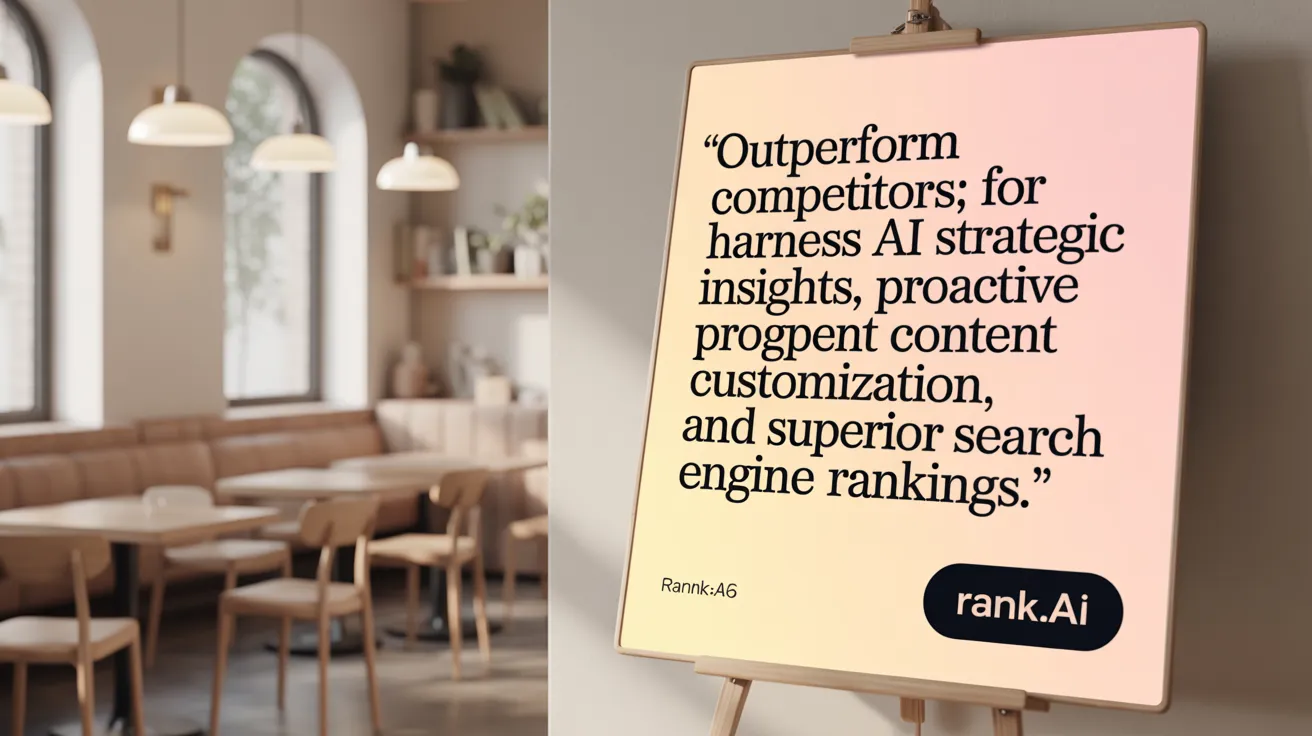
What are the benefits and best practices of implementing AI-driven SEO strategies for competitive advantage?
Adopting AI-powered SEO methods brings considerable benefits that can give businesses an edge over competitors. Automation is at the forefront, streamlining repetitive tasks such as keyword research, content optimization, and website audits. This saves time and resources, allowing teams to focus on strategic growth. For example, AI tools like SEMrush and SurferSEO can analyze vast datasets rapidly, uncovering keyword opportunities and technical issues more efficiently than manual analysis.
Enhanced accuracy is another major advantage. Natural Language Processing (NLP) enables AI to better interpret user searches, understanding intent and context beyond simple keywords. This improves content visibility in semantic search results and aligns more closely with user expectations. AI-driven predictive analytics further assist by spotting emerging trends before they become competitive, enabling proactive content strategies.
Integrating AI insights with human expertise is vital. While AI provides data-driven recommendations, human judgment ensures these align with brand voice, ethical standards, and nuanced audience needs. Regularly updating and validating AI models helps maintain relevancy and accuracy, avoiding outdated or biased outputs.
Aligning AI-driven SEO initiatives with overarching business objectives maximizes impact. Personalization through AI enhances user engagement and conversions by targeting specific user behaviors and preferences accurately. Additionally, smaller local businesses, such as those in Columbus, Ohio, can leverage AI for local search and voice optimization, increasing visibility in their communities.
Best practices include a balanced approach: use AI tools for automation and data analysis, but ensure human oversight to interpret findings ethically and contextually. Continuous monitoring and adjusting strategies based on real-time AI insights help maintain competitive agility. This sustainable approach strengthens a business’s ability to adapt swiftly to search engine algorithm updates or market shifts.
In conclusion, AI-driven SEO strategies foster efficiency, precision, and proactive planning. They allow businesses to stay ahead in the competitive digital landscape by enabling faster decision-making, uncovering new opportunities, and delivering personalized user experiences that boost rankings and engagement.
How AI Technology Advances Overall SEO Performance
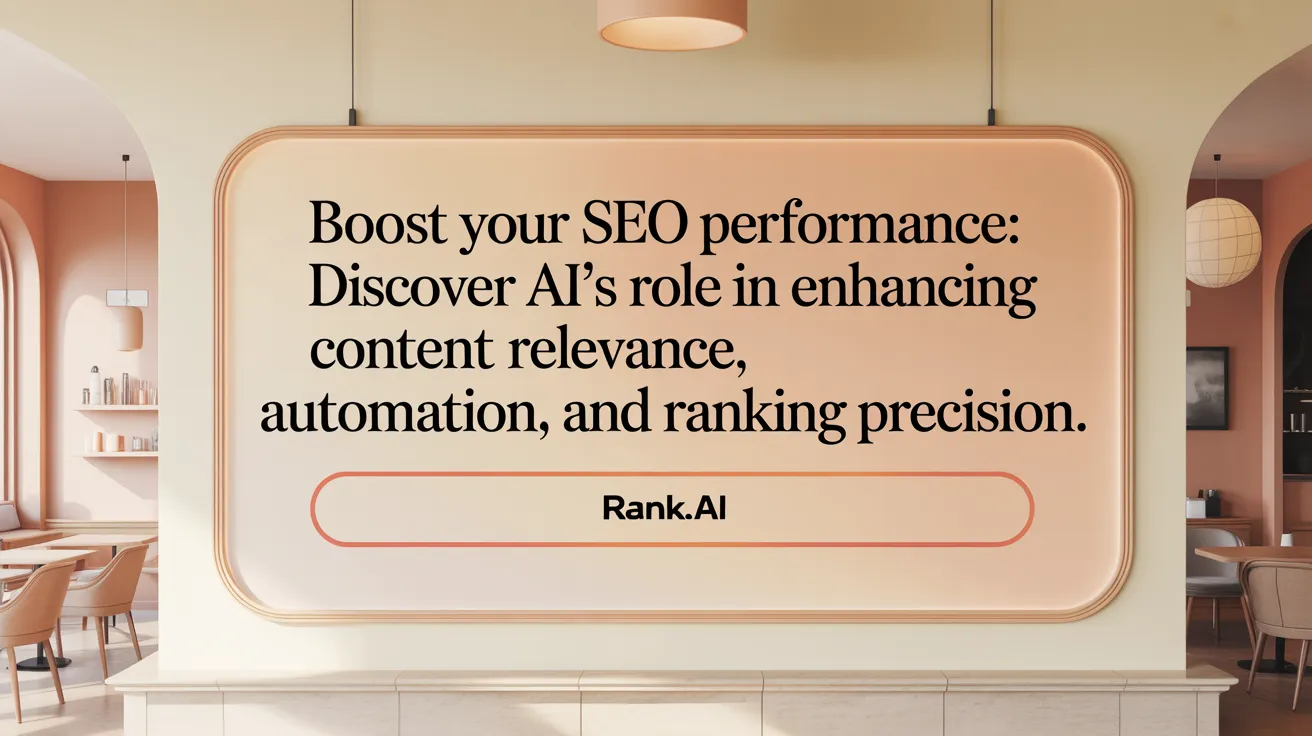
How is AI technology advancing to enhance overall SEO performance?
AI technology is revolutionizing how businesses approach search engine optimization by dramatically improving precision and efficiency. One major influence is in content optimization, where AI tools analyze large datasets to identify high-performing keywords, uncover content gaps, and suggest improvements. These systems can increase the accuracy of keyword suggestions by up to 30%, ensuring that content aligns closely with user expectations.
Understanding user intent is another area where AI excels, especially through Natural Language Processing (NLP). This technology helps decipher complex search queries and conversational language, enabling more targeted and relevant content strategies. As a result, SEO efforts become more aligned with what users are truly seeking.
Predictive analytics driven by machine learning further enhance SEO by forecasting emerging search trends. This allows businesses to create timely content and adapt strategies proactively, often ahead of competitors. Tools like SEMrush and Ahrefs analyze patterns in large datasets to identify trending keywords and topics before they become broadly competitive.
Automation also plays a vital role. AI automates many technical SEO tasks such as site audits, schema markup creation, crawl diagnostics, and monitoring Core Web Vitals. These tasks, previously time-consuming and manual, are now streamlined, enabling rapid adjustments that improve indexing and ranking.
The influence of AI on search engine algorithms is palpable with innovations like Google's BERT and MUM. These advancements facilitate a deeper understanding of search context and semantics, making results more relevant to complex and conversational queries. This evolution pushes SEO practitioners to adopt smarter strategies and prioritize quality content.
Furthermore, AI enhances personalized user experiences by delivering tailored content recommendations based on user behavior and preferences. It also bolsters voice and visual search capabilities, aligning content with natural language queries and visual patterns.
In sum, AI’s integration into SEO transforms the discipline into a more intelligent, data-driven, and user-centric field. It empowers marketers to adapt swiftly, optimize more accurately, and ultimately achieve better search performance than ever before.
Optimizing Technical SEO with AI for Superior Indexing and Ranking
Site architecture enhancements
AI tools analyze website structure to recommend improvements that facilitate better crawling and indexing by search engines. These improvements include optimizing internal linking, organizing content hierarchies, and designing user-friendly navigation paths that align with AI-driven insights.
Schema markup automation
Implementing structured data helps search engines understand your site content more effectively. AI automates the creation and deployment of schema markup, ensuring it accurately reflects your content types such as reviews, products, or events, which can enhance rich snippets and visibility in search results.
Page speed improvement
Site performance is critical for SEO rankings. AI-powered analysis detects bottlenecks affecting load times—like large images, inefficient code, or server response delays—and recommends optimal solutions to boost page speed, leading to better user experience and higher rankings.
Natural language meta tags
AI techniques generate meta tags that mirror natural language and user search patterns. These tags improve relevance and click-through rates by aligning metadata with conversational queries, especially important with the rise of voice search.
Crawl issue diagnosis and Core Web Vitals monitoring
AI continuously monitors technical health indicators such as crawl errors, broken links, and Core Web Vitals — including loading performance, interactivity, and visual stability. By diagnosing and fixing issues proactively, AI helps maintain optimal indexing conditions, ultimately supporting improved search rankings.
| Technique | AI Role | Improvements | Additional Insights |
|---|---|---|---|
| Site Architecture | Analyzes structure | Better crawlability, user navigation | Ensures content is discoverable and well-organized |
| Schema Markup | Automates creation | Enhanced rich snippets | Improves visibility in SERPs |
| Page Speed | Diagnoses bottlenecks | Faster load times | Boosts user experience and rankings |
| Natural Language Meta Tags | Generates metadata | Better match with search intent | Facilitates voice and conversational search |
| Crawl & Web Vitals Monitoring | Continuous health checks | Early issue detection | Maintains site’s technical performance |
Leveraging AI in these technical areas ensures that websites remain aligned with evolving search engine requirements, ultimately improving indexing, visibility, and user experience.
Leveraging AI for Voice and Conversational Search Optimization
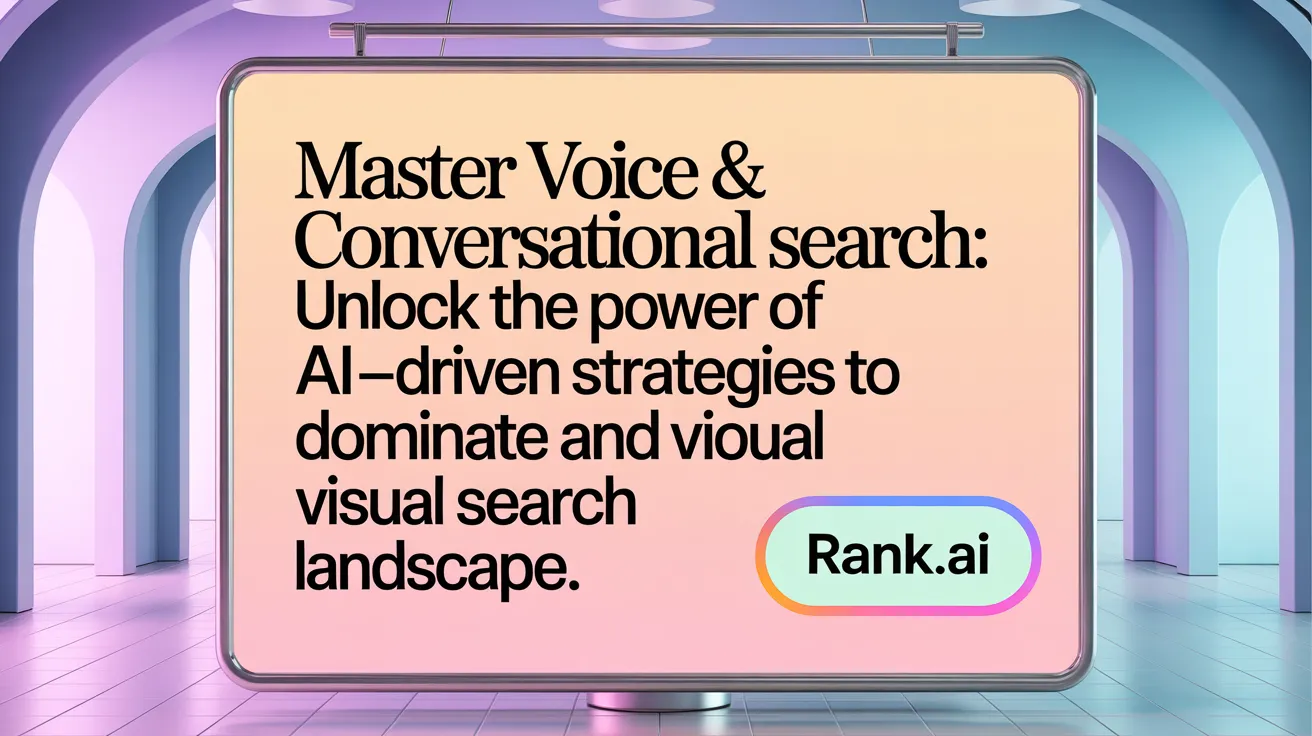
How does AI help optimize for conversational, natural language phrases?
AI enhances voice search SEO by enabling the analysis of how users naturally speak. Instead of focusing solely on traditional keywords, AI tools parse conversational language, which often includes questions, long-tail phrases, and colloquial expressions. This shift allows content creators to craft more natural-sounding content that aligns with user speech patterns, increasing the chances of appearing in voice search results.
What patterns does AI analyze in voice search queries?
AI uses pattern analysis to identify common question formats, speech rhythms, and phrase structures used in voice searches. By examining large datasets of voice query logs, AI can detect trending questions and linguistic nuances, such as variations in pronunciation or regional speech patterns. This helps marketers anticipate what users are likely to ask next and tailor their content accordingly.
How does AI contribute to voice SEO strategies?
AI plays a critical role in shaping effective voice SEO strategies by providing insights into how users phrase their queries conversationally. It can also optimize content to match these patterns through natural language processing (NLP). Additionally, AI-powered tools can suggest schema markups, such as FAQ or How-To schemas, that improve the chances of voice assistants retrieving and vocalizing content accurately.
How should SEO content be aligned with speech patterns?
To optimize for voice search, content should be written in a conversational tone, using questions and answers that reflect natural speech. AI helps identify these patterns, enabling creators to incorporate common phrases, long-tail keywords, and often-asked questions into their content. This alignment boosts visibility in voice search results and enhances overall user engagement.
Personalization and Predictive Analytics Elevate SEO Effectiveness
How does AI help in anticipating user behavior?
AI-driven SEO tools analyze large datasets to identify patterns and predict future user actions. By examining search histories, browsing habits, and engagement metrics, AI can forecast what users are likely to seek next. This proactive approach allows businesses to tailor their content strategies effectively.
How does AI enable tailored content and user experiences?
Personalization is at the core of modern SEO. AI tools use insights from user data to create customized content and website experiences that match individual preferences and behaviors. This targeted approach improves user engagement, reduces bounce rates, and boosts rankings.
How can AI facilitate proactive content updates?
Through predictive analytics, AI identifies emerging search trends and content gaps before they become competitive. By continuously monitoring changing user interests, AI enables marketers to update or create content proactively, staying ahead of competitors and maintaining relevance.
What role does AI play in forecasting future search trends?
AI-based trend prediction analyzes current search data to spot long-term shifts and new popular topics. This foresight helps businesses optimize their keyword strategies and content plans in advance, ensuring they remain visible in evolving search landscapes.
Overview of AI’s role in personalized SEO
| Aspect | How AI Contributes | Benefits |
|---|---|---|
| User Behavior Prediction | Analyzes patterns to forecast future actions | Improved targeting, higher engagement |
| Content Personalization | Customizes content based on user data | Increased relevance, better rankings |
| Trend Forecasting | Detects emerging topics early | Staying ahead of competitors |
| Technical Optimization | Automates analysis of site data and updates | Enhanced site performance |
By leveraging AI for personalization and predictive analytics, businesses can deliver more relevant content, respond proactively to search trends, and ultimately achieve greater SEO success. This integrated approach supports long-term growth and a better user experience.
AI Integration with Human Expertise: The Key to Sustainable SEO Success
How can a balanced approach with AI and human skills enhance SEO strategies?
Combining AI tools with human expertise offers a comprehensive approach to SEO. While AI swiftly analyzes large datasets and uncovers patterns or opportunities, human insight ensures that content remains engaging, authentic, and aligned with brand voice. This synergy allows marketers to automate routine tasks like keyword research and site audits while focusing on strategic, creative efforts that require human judgment.
Why are ethical and contextual SEO recommendations important?
AI-driven recommendations must be grounded in ethics and context to avoid misinformation or manipulation. Human oversight ensures that SEO strategies respect search engine guidelines and user trust. Contextual understanding—such as local relevance and cultural nuances—further enhances ranking potential without risking penalties or reputational damage.
How does real-time performance monitoring support SEO efforts?
AI-powered analytics enable continuous, real-time monitoring of website performance, allowing for swift adjustments. This ongoing oversight helps identify issues early—like crawling errors or declines in user engagement—and measure the impact of new strategies immediately. Human oversight is necessary to interpret these insights accurately and decide on the best course of action.
What are adaptive strategies for evolving search intent?
Search intent shifts as user behavior and technology evolve, especially with the rise of voice and conversational search. An integrated approach combines AI’s ability to analyze emerging trends with human adaptability. Marketers can pivot content strategies quickly—such as optimizing for voice search queries—by keeping a close eye on AI-driven trend predictions and applying human creativity to stay ahead.
| Key Aspects | AI Capabilities | Human Contributions | Benefits |
|---|---|---|---|
| Data Analysis | Large-scale data and trend prediction | Contextual understanding | Faster insights and nuanced interpretation |
| Content Optimization | Keyword clustering, semantic analysis | Content quality & brand voice | More relevant, targeted content |
| Performance Monitoring | Real-time metrics & alerts | Strategic adjustments | Dynamic and effective strategies |
| Innovation & Adaptation | Trend spotting, predictive analytics | Creativity and ethical oversight | Competitive edge and trust |
Embracing a hybrid approach with AI and human skills is essential for sustainable SEO success in an ever-changing digital landscape. This balance not only boosts efficiency but also preserves the quality and ethics crucial for long-term growth.
Embracing AI-Driven SEO for Future Market Leadership
Innovative AI-driven SEO strategies empower businesses to outpace competitors by unlocking faster insights, automating complex workflows, and precisely targeting user needs. As AI technologies continue to evolve, integrating cutting-edge tools with human expertise will be pivotal to delivering personalized, authoritative content and seamless technical excellence. Proactively leveraging predictive analytics, voice optimization, and real-time monitoring will position organizations not just to adapt but to lead in the ever-changing search landscape. Embracing this AI transformation ensures a sustainable competitive advantage and drives long-term digital success.
References
- AI-Powered SEO for Businesses | Core Strategies That Rank
- AI SEO Strategy 2025: Boost Rankings & Outperform Rivals
- Advanced AI Techniques for Keyword Research
- AI-Driven SEO: Strategies and Tools for Success | DSM
- AI for SEO: Your Guide for 2025
- I Tried 10 AI SEO Tools (Paid & Free). Here's What Works
- Ultimate AI SEO Guide for Beginners & Experts ...



